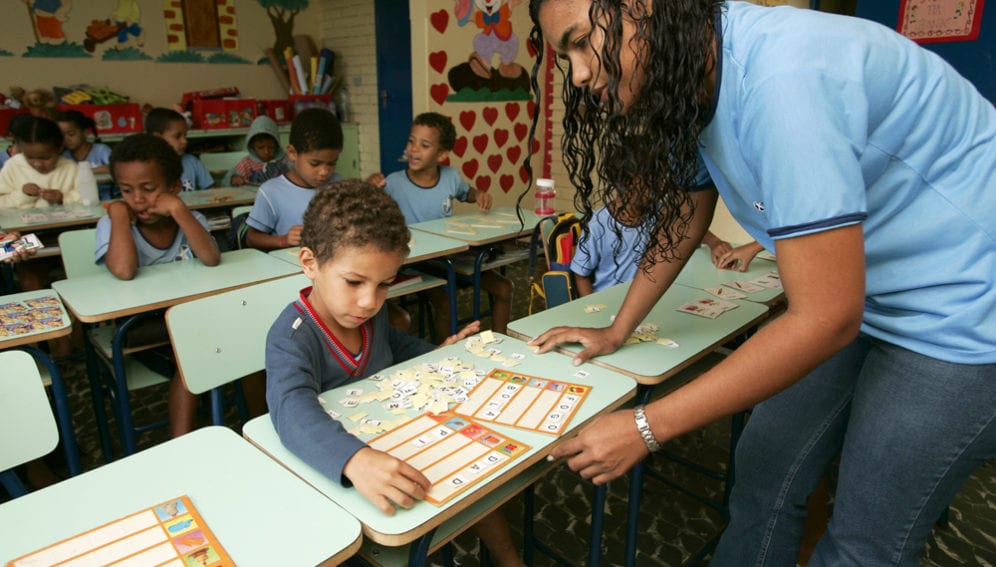By: Kaz Janowski
Send to a friend
The details you provide on this page will not be used to send unsolicited email, and will not be sold to a 3rd party. See privacy policy.
The 6th World Science Forum opened in Brazil last month amid the opulent splendour of the municipal theatre in downtown Rio de Janeiro. This was the first time the event had taken place outside its Hungarian homeland.
Its main theme was ‘Science for Global Sustainable Development’, framed by Irina Bokova, director-general of UNESCO (UN Educational, Scientific and Cultural Organization) in her opening address, with the oft-cited quote attributed to the Native American leader Chief Seattle: “We do not inherit the Earth from our ancestors; we borrow it from our children”.
This powerful message remains both inspirational and tragic; inspirational in the sense that it underpins the core notion of sustainability, and tragic because it underlines the fate of so many people around the world over the past century. The message serves as both a warning and a spur to action for the development community.
I was struck by three things during the forum. First, the emphasis on education — hardly surprising in view of the cohort of seasoned academics present from more than 100 countries. And second, the call for a younger voice at august events such as these forums, an appeal justified by the high proportion of silver-haired men present at the discussions — myself included. Lastly, I was struck by the amount of political buy-in, or rather the lack of it, in Rio’s science and sustainable development debate.
Education at the centre
Key terms reverberating through the forum discussions included inequality, policy, governance, scientific integrity, natural resources and innovation, but crosscutting all of these was the importance and centrality of education.
“Education … emerged as a key contributor to the role of science in sustainable economic development.”
Kaz Janowski
As a result, education — and particularly science education — emerged as a key contributor to the role of science in sustainable economic development. There was agreement that early education, traditionally associated with reading, writing and counting, should also include training in reasoning skills. The ability to reason is, of course, fundamental to true scientific literacy, as opposed to the ability to learn facts, which can sometimes stifle the creative thinking skills that science demands.
I spoke to Eduardo Viotti, science and technology policy advisor for the Brazilian Senate. He noted a “disconnect” between science, technology and sustainability policies on one hand and the political sphere on the other. Viotti pointed out that parliamentarians who dedicate a large part of their time to these issues tend not to be re-elected because the time frame for the political returns on these initiatives are long-term, while elections must be won in the short-term.
One of the few things that can be done to influence this disconnect, he said, is to combat the lack of scientific literacy within the population, not only with formal education but also through the diffusion of scientific knowledge and an increasing popularisation of science.
As Viotti said to me: “If we had people better educated in science and maths, and if the population related more to these issues, they would be more supportive and patient to support these [sustainability] initiatives”.
But as well as creating a scientifically literate population, a generation of scientifically literate leaders is also needed — and there is a role for young scientists here.
An infectious ‘can-do’ spirit
This brings me to my encounter with Mande Holford, a scientist from New York City, whose passion and “evening job” — as she put it — is identifying new scientists all over the world, but especially in Latin America and Africa, who have a voice and want it to be heard. She wants to infect the world with the energy, excitement and ‘can-do’ spirit of what is happening in science and technology to address the challenges of promoting global development.
The organisation she represents goes under the acronym of WAYS (the World Association of Young Scientists). Its goal is to provide a bridge that can help politicians and scientists meet. Young scientists, Holford believes, should be more involved in events such as the World Science Forum.
Finally, we come to world leaders’ role in this process of ensuring that future generations are equipped to tackle the world we are leaving them, bearing in mind Chief Seattle’s words. I noted a conspicuous absence of what I would call political leadership with gravitas in Rio. While pressing affairs of state are obviously going to be priorities for parliamentarians, video messages of support are hardly a substitute for personal appearances.
Scientists and politicians need to spend a lot more time together and, in some cases, perhaps even be the same people. As Holford said to me: “We want to be in the boardrooms, we want to be behind the scenes, we want to be in the parliamentary house, we want to be invited to sit on steering committees. We don’t want to hear about it afterwards. We want to shape it and we want to do it. And the way we do that is by identifying dynamic individuals and supporting them.”
By the time of future World Science Forums, let’s hope that at least some of these aspirations will have become a reality.
Kaz Janowski
Editor, SciDev.Net














